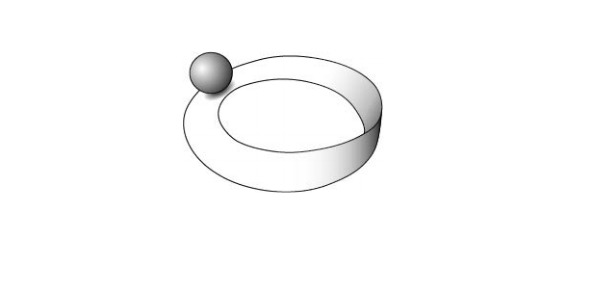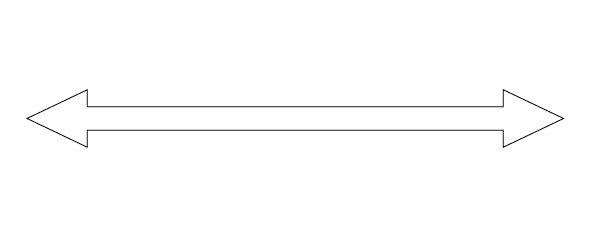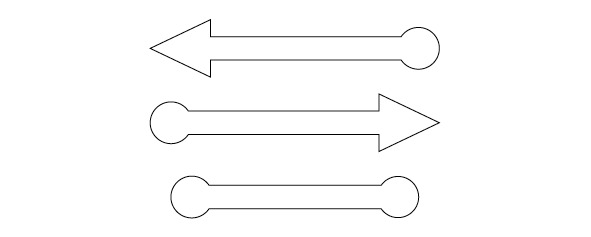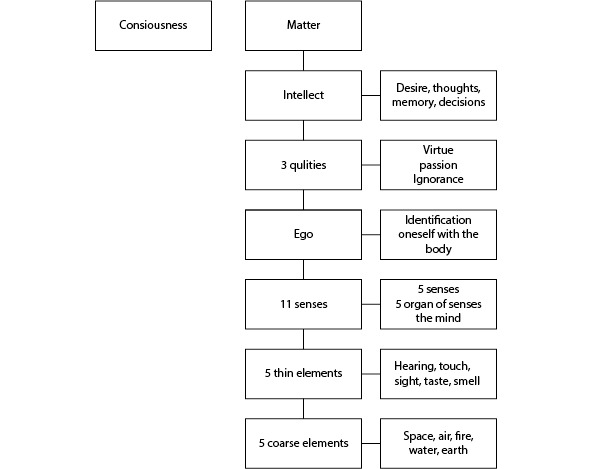
Introduction
What is happening around us? Who or what rules all that we perceive? What does it depend on? What will happen when our life is over? Why do we suffer and whether this be can avoided? Why injustice takes place in the world? When will our worries be over? What are the “supreme forces” looking at?
The rhythmic influx of suffering and anxiety force us to take a try to investigate what is happening and think about this matter again and again, looking for the guilty.
All the thoughts that we will discuss are not newly invented. They are thousands of years old, and maybe more. No matter who it was — Greek, Chinese or Indian. Let’s try to explore a rather complicated issue without scientific terms and without religious and scientific dogmas. So that our thought could be accepted by any person.
So, here’s what we’ll try to substantiate:
— We are an indivisible eternal unchangeable consciousness.
— All that except this is unconscious matter.
— Our existence does not end after the death of our body.
— Suffering is an integral part of being.
— Ignorance of the structure of the world is the cause of suffering.
— God is the top of the pyramid of hierarchy, but not the creator.
— Everything that happens has an eternal unchanging cycle.
— The concept of sin is a social regulator of society, not a supernatural law.
— All the characters in the universe move strictly on their storylines.
— Freedom of choice does not exist in principle.
— The possibility to exist without suffering for a long time is present, but it is temporary.
Also, we shall discuss other aspects of our life in the course of reflection.
What shall we use for our research? What tools will we use? What will be evident and obvious for any person?
Our immediate personal experience, which any man possesses and a logical conclusion. The logical conclusion is simple without academic difficulties.
After all, each person has ears, skin, eyes, tongue, nose, and the corresponding sensations, and mind. Also, everyone has an ego and intellect. Everyone has these tools for research.
Intellect allows us to compare our experience and draw a logical conclusion.
Some offer a third kind of knowledge through the scriptures, scientific literature, as authoritative evidence. But we are not all familiar with the authors or heroes of these works, and we cannot verify their trustworthiness, so this method is suitable for those who used to believe a word, but this is not appropriate for all.
Whatever we do, about what we think, in one thing we all are similar. We all would prefer to exist without suffering and fear, experiencing comfort and joy.
Let’s try to define such basic questions — who we really are, and what are we here for, and how to get what we desire?
It is not necessary to be a doctor of science, a specialist or a professional philosopher since the basic tools and experience are actually the same for all.
Everyone, interested in these topics, can figure this out. Someone can say that our senses are imperfect, yes, the sense organs are really imperfect, but not the sensations themselves, and the reflections of the intellect are unlimited.
And so, what motivated us to reason or study the issue in general? Discomfort, suffering, anxiety, insecurity, helplessness moves us to constant searching for a way out of this condition.
Let’s define the basic well-known concepts again to bring the meaning of concepts to a common comprehension.
PART 1
Being and nothingness
Being is that, what is, and nothingness is the opposite state of not existence. The being of something indivisible is eternal, and the being of something complex is temporary. For something indivisible, nothingness is impossible, since it is not subject to change.
For example, for a clay jug, as a compound form, there is only a temporary being that turns into nothingness after the jug is broken, but nothingness is impossible for its constituent particles of matter since they are indivisible.
Infinity
This is a fairly simple concept. This is what does not have a beginning and an end. This is not a line or a spiral. We do not see this in real life. In our experience, there is no example of infinity. It is observed only in a circle or cycle. What about infinite space? How to understand infinity?
Using the analogy. The outer space flows into the inner space and the inner space into the outer space. This ensures spatial infinity. As a principle of the Möbius loop. This is certainly not a statement, many of readers can disagree, it’s taken only as a variant.

Eternity
This concept is well known. But nevertheless, we shall specify it. This is something that begins without beginning and lasts endlessly without any interruption. Everything else is temporary.
There are ideas of some thinkers, also there are categories. Lasting without beginning, but having an end, and something, once started and lasting forever. But this can not be attributed to eternity since it does not last in both directions, and therefore, it is temporal. What has a beginning, necessarily has an end. And eternity has neither beginning nor end.

The concept of an infinite ray having a beginning and having no end exists only in theoretical mathematics, but not in reality. This is absent in our experience. Therefore, we will not consider these variants.

We take this division into components from the sankhya, the teachings of the Ancient East. It is very convenient for understanding and includes all the categories known to our experience.

Consciousness
Consciousness is the most complex concept. The elusive, subtle, tangible only when everything that is not its constituent part, is separated by the reflection of the intellect.
Conscious and unconscious. These are two categories by which we can share everything that we know in this world. Conscious is a consciousness, whose nature is to realize. Unconscious is a matter that is incapable of knowing anything.
Consciousness is an observer, a “conscious” of what surrounds him. Someone realizes himself to be a man, a god, an animal, a man, a woman, looking at what kind of body he occupies and observes. Naturally, awareness is impossible without a material body consisting of intellect, ego, feelings and other elements. Consciousness is aware of the matter, and the matter exists for its being realized, seen by consciousness.
Consciousness can be separated by reasoning, but in its pure form, if one removes matter, it can not perform its function — to be aware, for an object is required for this, that is, matter. For example, vision in the absence of light cannot perform its function — to observe objects, although the vision itself does not cease to exist. Therefore, these two dimensions — consciousness and matter, are always in contact.
There is an opinion that consciousness as such does not exist, there is an intellect or mind. But we know that the intellect can be different, and the function of consciousness is the same for all. For example, in a cinema hall, a lot of people watch a movie. Each viewer can have his own attitude to the plot of the film, depending on the level of intelligence, but all are equal in one thing, that they are watching, contemplating or realizing what is happening. Consciousness is a spectator, and conclusions, thoughts and emotions are a material intellect. The function of the viewer or observer is inherent in all and is the same for all.
There may be another objection. That consciousness is one of the qualities of intellect, and there is no need to separate it into an independent category. But once the intellects are different, which means that they are compound, and therefore belong to matter. Then what are these tools for? Cinema exists for the viewer, not for itself. Intellect is a tool for the intellectual activity and for the creation of solutions that consciousness observes. Therefore, the existence of consciousness as separate from the category of the matter is more grounded.
Someone can say that consciousness is a part of matter, a kind of conscious matter. Let it be so. All the same, there are still two categories that are conscious matter and an unconscious one. Therefore, further, we will call everything unconscious as “the matter”.
One exists for another. Matter exists for consciousness, and it can consist of parts, take different forms, and consciousness can realize it. Consciousness has no parts by definition of the eternal principle of immutability, described above. Everything that is invariable is eternal, not divisible, it is elementary. Matter in its elementary form, in the wave field of the intellect, can take different compound forms, producing qualities and so on. Both categories have eternal being. The forms that matter accepts are temporary. This we see from our own experience.
The viewer is immutable, and the cinema or matter is in constant change or movement.
Consciousnesses are the same because they are homogeneous. The presence of qualities would endow them with a component part. So it would be a changeable being. The eternal unchanging, it is always indivisible, elementary, in fact. Good consciousness, bad consciousness, and so on would make it consisting of two-parts — consciousness plus quality. Hence follows the possibility of destruction. The quality itself does not have consciousness, and therefore, it refers to matter.
What causes matter to create the universe? Presence of consciousness. Apparently, the mechanism of the deployment of the matter is arranged in this way. The presence of consciousness includes the mechanism for unfolding the universal cinema of matter. Its purpose is to exist for the consciousness and unfold the universe for it. The presence of consciousness is a constant catalyst for the initiation of a cyclic chemical-biological reaction of matter, under which the unfolding and subsequent folding of the universe takes place. As a cinema is intended for the viewer, and not for itself, matter reacts to consciousness and serves its main function — to be conscious. If you remove the viewer, then there is no meaning in showing something. One serves the other, thereby ensuring the mutual functioning of both.
If we assume that matter is pushed by the desire of consciousness, then consciousness again becomes compound. Consciousness plus desire. And therefore the constant being of such a consciousness is impossible.
Therefore, we come to the conclusion: the being of consciousness is eternal, the consciousness has no qualities, is indivisible, has no form and is inactive.
There is another opinion that consciousness is integral, and is only one. Every consciousness is a continuation of the consciousness of god, who is conscious of everything, immediately penetrating into all bodies. But in our experience, this is not observed.
We are aware, for example, that I am now a person with a certain body and name, but at the same time, we are only aware of one body. We do not feel like our relative, friend, casual passer-by or dog in the yard.
Бесплатный фрагмент закончился.
Купите книгу, чтобы продолжить чтение.